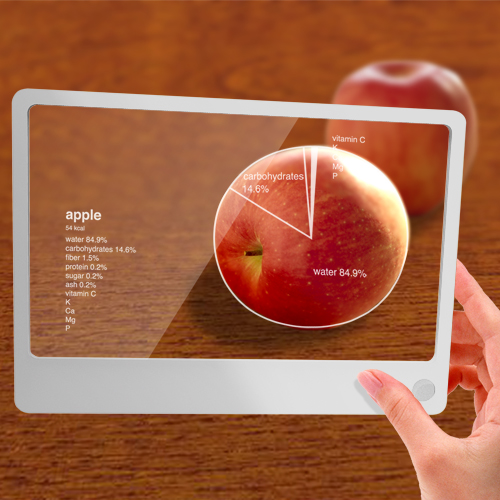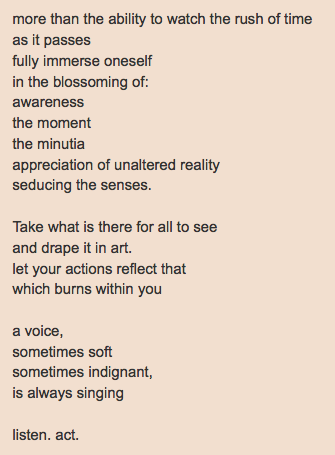When you first begin to read the post you think that Dr. McLeod is against technology and how it can make bad impressions on our youth. He says that we need to "block it all, shut it down" because all social networking, cell phones and blogging does is make our kids unsafe and expose them to too many different things. He says that kids "can't be trusted". Then right at the end he says, "don't do any of it, please. Really, cause I'm doing it with my kids". I am right there with him. We have to teach our students about using technology wisely, efficiently and responsibly. It is a well-known fact, that the jobs that the majority of them will be doing will be technology-based to some degree. These jobs are not even created yet. As an educator, it is our responsibility to help guide them and give them the tools that they need to succeed and be contributing citizens to our country and worldwide as well. Also, I personally know that I don't want to be left in the dust of my students or my own kids. I want to be right them with them learning and growing. Just because we get our degree and teaching certificate does not mean that we have learned all we need to know. Learning should never stop. As a teacher, you have to be able to adapt and evolve with the latest and greatest teaching methods and technologies available. If you disagree, then maybe you should take a look at another field of study.

In 2009, 17 year old high school student, Travis Allen created a YouTube video called the "
iSchool Initiative" showing a solution to our current education problems in the United States. This 5:42 video discusses how our school system can save money and at the same time allow students, teachers and parents all access to the student's work, assignments, school events, test scores and more. Travis' proposal is for every student to own and use the iPod Touch interface system in place of books, pens, calculators, planners & other required school materials. By using this technology, schools would save on average about $500 per student. This would not only help schools become more "GREEN" friendly, but would also be a great opportunity for schools to put money back into the system. Wouldn't it be great it schools could hire more teachers, instead of laying so many off and continue to overcrowd classrooms.
I believe that Travis is onto a brilliant idea. I also know that some schools are already trying to take the initiative and convert from books and paper to iPads, as well as, MacBooks. All of these products are created by
Apple. I personally rely on my iPhone for many of the same app features to help me with school here at USA. Since 2009 there have been thousands of new apps created to help improve and assist students, teachers and other professionals within our school system. I look forward to seeing the many great things that Travis Allen will accomplish for our education system.
Eric Whitacre's Virtual Choir
Eric Whitacre is a very well-known composer and public speaker. He gave an amazing and one-of-a-kind performance in "Lux Aurumque" ,a virtual choir performance, which can be viewed
here on YouTube. The choir consists of 185 singers from 12 different countries. My first thoughts were how beautiful and peaceful the voices of these performers are. They harmonize and synchronize with such impeccable grace. I felt like I was floating in an ocean as the waves rolled underneath me. My mind then wandered as to how the heck did this guy put this thing together. I can only imagine the time and planning that would be necessary to undergo a project of this magnitude. It is just truly amazing how these people from all over were so unified in their performance. With an internet connection and a computer, you can virtually go anywhere and do anything. The possibilities truly are endless. Bravo to Mr. Whitacre and his genius production! If you would like to learn more about the virtual choir and how it began, please click
here to watch learn more.
Teaching in the 21st Century
Kevin Roberts created a video about teaching in the 21st Century. After watching the
video, I sat and thought about the questions asked. What does it mean to teach in the 21st Century? I believe that it means that teachers have a much different job then they did when I was being taught. All my life, I was just presented with facts, theories, methods, and stories about things that did not interest me one bit. Regardless of my interest, my mom expected me to do very well, so I did. I read my books, took my test, wrote essays and completed papers on a variety of topics that did not apply to my life at all. Of course, this was not a complete waste, but 10 years later after graduating high school I can only name a handful of lessons taught by teachers that really stand out. The ones that I do remember were way ahead of their time. I am grateful to those who stepped outside of the box. Now I am 28 years old, and I do find myself to be fairly bright, but it's not from making all A's on my report card. It's because I was released into the world and had figure it out. I had to learn new skills that actually applied to my life. I learned how to create a budget, how to do my taxes, how to change a tire, how to cook a meal. The lists could go on and on. I learned these things because I did them with my own hands.
Hands on learning is "engaging". That type of learning stays with a person forever. You learn how to ride your bike not by reading about it, but by doing it. As teachers of the 21st Century, I believe that we must engage and interact with our students by using technology based programs and software that will allow them to learn tools that they will need to be able to apply to their lives. Some parents and teachers may find technology threatening or have concerns with cheating, or mis-use of computers, iPods, cell phones and other gadgets. Ask yourself this...why not teach and guide our students on how to responsibly and professionally utilize technology to create, learn, communicate, and write. Technology is just like any other problems parents and teachers have been concerned about in the past. We worry about sex and drinking, but we are continuously educating our students on this subject matter so they can make better choices and see the big picture. The same thing has to be done with technology. You may not want them to use it, but if they are wouldn't you rather them use it safely, wisely and to their benefit to help them achieve success? I know as a parent and educator, I sure do. I want my children to be smart and successful. I want them to use all parts of their brain. I want them to have opportunities to be creative and figure things out on their own. These kids are born in a world where all they have ever known is technology. They are more comfortable with it than many adults out there because most adults have had to adapt to it and incorporate it into their lives. Another point I would like to make is that technology gives students who may be limited financially to be able to learn about other cultures just from having an internet connection. I think that kids who are more exposed to more culture and diversity grow up into more well-rounded individuals.

is a website whose goal is to bring reading research to life and to help spread the word on "what works" for parents, teachers and administrators. As a parent of a First Grade child, I was thrilled to learn about the tools and techniques available for me to help improve my son's reading. As I mentioned in an earlier post, he is ADHD, so we have to work a little harder at keeping his attention. At home, we have a book corner and encourage reading and writing daily. We have had to change our reading strategy a few times. Just like this website says regarding
struggling readers, we had to find books that he could make a personal and emotional connection with.
From a teaching standpoint, I was amazed with the quantity of resources available through this page.
Reading Topics from A to Z is very thorough. The topics are listed in alphabetical order ranging from "About Reading" to "Writing". There also is a link for
Videos and Podcasts. I think that this would be quite engaging for students to read a book and learn a little about the author via these multimedia tools. I think it would be nice for them to put a face and a voice with the person who wrote the story. Reading is all about making connections. It is the basis for EVERYTHING in our lives. If a child is not able to read, then they will struggle without a doubt academically. The parents need to also be made aware of websites such as Reading Rockets. A successful reader not only learns at school, but parents have to encourage and help teach their child at home. It is a combination of both. I will most definitely be looking at resources on here that I believe can help my son and myself create stronger reading skills.


.JPG)







